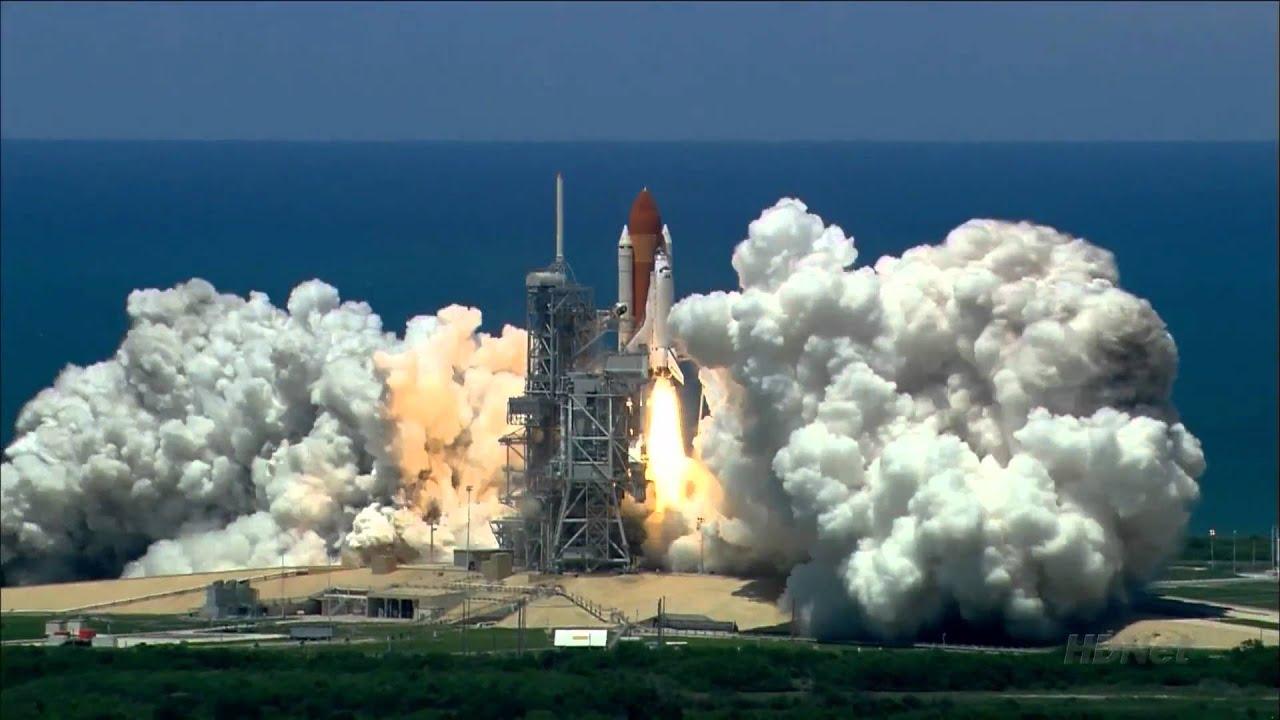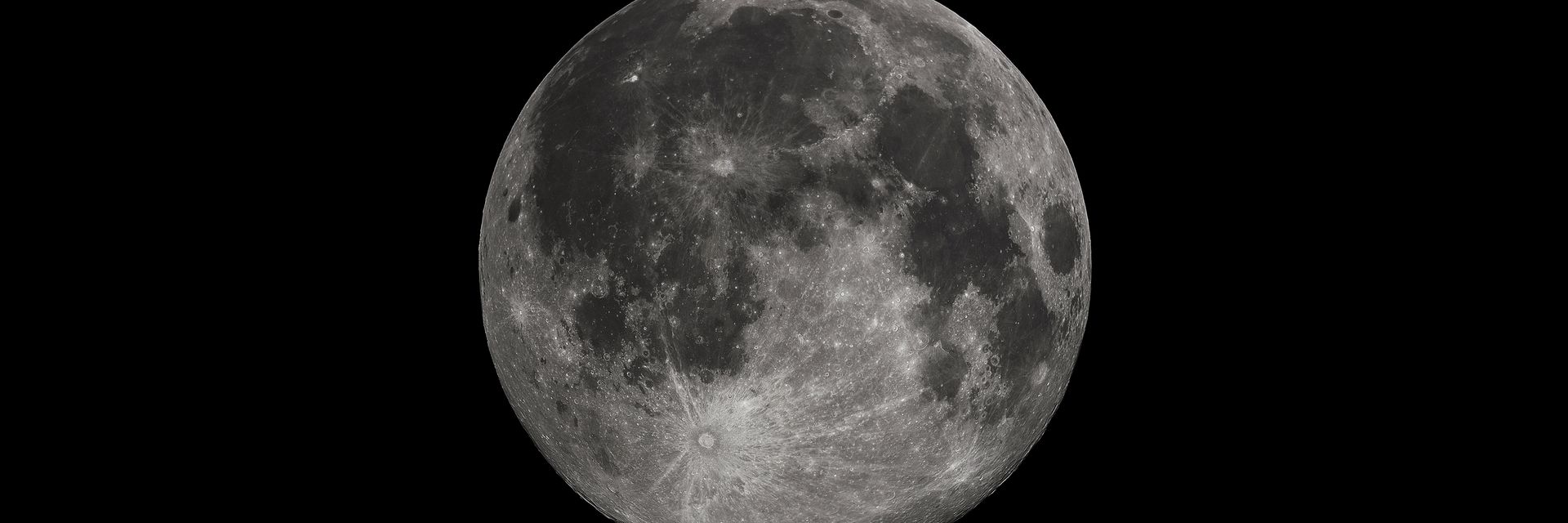Under the terms of the Outer Space Treaty, signed by the U.S., the U.K., and the Soviet Union in 1967, nobody owns the Moon. However, one individual has managed to make millions off selling plots of lunar land, citing the fact that the treaty only refers to nations, not private buyers. Recently, significant interest in a potential celestial real estate market has emerged among wealthy prospectors, sparking discussion about what it means to make money off the Moon – and about whether space colonization should be encouraged at all, given the bloody history of earthbound colonization.
◊
Being human is a rather strange experience, and one of the strangest things of all – in my opinion, at least – is looking up in the night sky, and realizing that the darkness you see is an infinite stretch of space, extending in all directions.

(Image courtesy of Pablo Carlos Budassi, via Wikimedia)
Between Earth and that deep, endless space hangs the Moon: the silver sphere that represents our closest link to that great unknown. Naturally, human beings have been fascinated by the Moon since time immemorial. In the 1950s, the Soviet Union and the United States embarked on a race to see who could make it to the Moon fastest – a race that was won by the U.S. when Neil Armstrong set foot on the Moon in 1969.
The Space Race raised a multitude of questions concerning what it means to be human on a planet other than Earth. It also set off alarms, as people imagined that the Space Race could quickly turn into a “Space War,” involving a fight for lunar real estate.
While you might imagine that this could make for a great film, the United Nations had other concerns.
A Brief History of Moon Ownership
In 1967, the Outer Space Treaty was signed by member nations of the U.N. The treaty’s full name is the “Treaty on Principles Governing the Activities of States in the Exploration and Use of Outer Space, including the Moon and Other Celestial Bodies,” which describes its purpose and contents fairly well. In essence, the treaty – which has been signed by 109 nations so far – seeks to “prevent a new form of colonial competition” by discouraging powers from embarking on dangerous or exploitative missions out in the wider universe. In essence, this means that outer space is a demilitarized zone, and no one can take ownership of any foreign planet.
In its short 17 articles, the treaty sets out a road map for how nations should conduct themselves when exploring space. Its main points are:
- All space exploration should be carried out for the good of mankind.
- All nations should be free to explore outer space.
- Outer space cannot be claimed or owned by any power.
- Nuclear weapons or other weapons of mass destruction cannot be stored on celestial bodies.
- States are responsible for damages that occur in outer space.
- States should avoid damaging or contaminating celestial bodies.
Just 13 years before the signing of the Outer Space Treaty, the U.N. signed its predecessor, the Antarctic Treaty, into being. That treaty also aimed to circumvent potential violence by declaring Antarctica’s independence from any sovereign powers. “In the interest of all mankind that Antarctica shall continue for ever to be used exclusively for peaceful purposes and shall not become the scene or object of international discord,” it read. Both the Antarctic and outer space – like the parts of the ocean that are more than 200 nautical miles away from any shore – are therefore technically politically neutral zones where national sovereignty does not hold sway.
For the past half-century, the Outer Space Treaty has served as the world’s official declaration of celestial independence. That doesn’t mean it’s without flaws. In 1979, the U.N. presented another document called the Moon Treaty, which declared that private ownership of the Moon is also prohibited; but as of 2018, only 18 countries had signed it – and the United States and Russia aren’t among them.
Therefore, the existing laws that govern space ownership technically leave the cosmos open to private buyers. As you might imagine, one very rich man has had the audacity to claim that he owns the Moon.
Dennis Hope: Landlord of the Moon?
While many billionaires have tried to stake claims to the Moon (we’ll get to those later), nobody has taken lunar real estate investments quite as seriously as Dennis M. Hope.
In 1980, Hope discovered a surprisingly obvious loophole in the Outer Space Treaty: While the treaty stated that no nation could own the Moon, it said nothing about individuals. Hope wrote a letter to the U.N. asking if he could lay claim to the Moon, took the silence he received in response as his cue, and quickly began selling lunar real estate at $24 an acre. Today, Hope claims that he has made millions of dollars off the Moon so far.

Dennis Hope with map of Moon real estate for sale. (Image Credit: Lunar Embassy)
While this all might seem like a gigantic con, some people have taken it seriously enough to lay their hard-earned cash down for a deed. So far, Hope’s patrons have included Tom Cruise, Barbara Walters, John Travolta, and even former U.S. Presidents George H.W. Bush, Jimmy Carter, and Ronald Reagan, all of whom bought into the belief that they owned land on the Moon.
According to the United Nations, though, Hope’s claims are absolutely fictitious, with no basis in any sort of legal reality.
Space Travel: A Profitable Investment?
Hope isn’t the only developer who’s set his sights on making money off the Moon. After him came Lunar Land, which calls itself “Earth’s oldest, most recognized celestial real estate agency,” and which sells packages that include deeds and maps. Then there’s the Moon Express, which plans to send commercial missions to the Moon, probably to mine for water and platinum.
“The moon is hot again.” —Jack Burns, director of NASA’s Network for Exploration and Space Science, quoted in The New Yorker
The Moon Express actually might be onto something. Although it’s currently illegal for nations to own real estate on the Moon, the question of private ownership is a gray area.
Since the U.S. landed astronauts on the Moon in 1969, no other country has successfully landed people there – though Russia and China, along with the U.S., have landed robotic probes. However, in recent years, there’s been an upsurge in interest in the Moon’s resources.


Space shuttle launch from Kennedy Space Center.
(Image courtest of NASA, via Wikimedia)
A trip to the Moon today symbolizes something quite different from what it did in 1969. Whereas that trip was largely motivated by geopolitical competition, many of today’s lunar prospectors are driven by a different, but related source: profit.
Overall, private companies seem to be more on the cutting-edge of making moon profits than public organizations. In 2007, the X Prize Foundation announced a $20 million cash reward, funded by Google, for a company that could land a robot on the Moon. Nobody was ever able to claim the prize, but many private organizations and enterprises have continued to push for new Moon technologies.
In pursuit of profit, some companies have generated imaginative business models. Some of the most creative include Celestis, a funeral-service company that plans to ship cremated remains to the Moon; and the Japanese company Pocari Sweat, which apparently wants to put the first sports drink (of all things) on the Moon. Like many other lunar explorers, Pocari Sweat has attempted to humanize their desire to profit off of space. They’ve collected thousands of stories of children’s dreams, and plan on putting the stories in a capsule designed to look like a Pocari Sweat can. The whole contraption is supposed to travel to the Moon, to be mixed with Moon water, as soon as the technology and funding becomes available.
Space: The New (Colonial) Frontier?
From Christopher Columbus’s conquest of the West Indies to Belgian King Leopold II’s bloody commercialization of the Congo, powerful nations helmed by powerful men have long steadily conquered and colonized parts of the world that remained tantalizingly “unknown” to them.
On the other hand, it may not be entirely appropriate to refer to humankind’s development and occupation of outer space as “colonization.” After all, there’s one obvious difference between earthbound and celestial occupations: On Earth, colonization almost always meant that indigenous people were going to get displaced, murdered, or enslaved – often, a combination of all three. In space, as far as we know, there are no alien life forms that will suffer the consequences of our infringement upon their homes.
Still, the way that many space explorers have described their missions often echoes colonialist or even racist ideas. Elon Musk has often described Mars as a potential “colony.” As part of a July 25, 2018, hearing of the Subcommittee on Space, Science, and Competitiveness, Senator Ted Cruz stated that he believes Earth’s first trillionaire will make his fortune by developing space – and he compared this effort to Europe’s conquest of the Western hemisphere. “I don’t know who it will be, and I don’t know what they will discover, or what they will accomplish,” he said. “But I think it is every bit as vast and promising a frontier as the New World was some centuries ago.” Of course, the colonization of the New World cost the lives of millions of indigenous people.
Interestingly, the same desire for unchecked expansion and ownership that has historically inspired space travel has also played a large part in exacerbating climate change. In an oddly cyclical twist, some prospective celestial developers have theorized that moving some of our industry to outer space could actually save us from climate-related disaster or from other Earth-threatening events.
Amazon CEO and richest man in the world Jeff Bezos has been eyeing the Moon for a while, and as of 2019, it looks like he wasn’t all talk. Bezos’s company, Blue Origin, is at work on a massive moon lander, and apparently they’re aiming to make a passage to the Moon as easy as an airplane flight. However, Bezos has a lofty explanation as to why he wants to go to the Moon, and it involves saving the world.
_(cropped).jpg)
Jeff Bezos plans to spend billions on space travel.
(Image courtesy of Van Ha for U.S. Space Force, via Wikimedia)
Apparently, he intends to move some of Earth’s most pollution-generating factories to the moon in order to “save the Earth” from the worst ravages of climate change, he said. “If we're going to continue to grow this civilisation, we need to move – and I'm talking about something our grandchildren will work on and their grandchildren and so on. This isn't something just this generation is going to accomplish.” Of course, Bezos’s venture isn’t entirely free from ulterior motives: Blue Origin intends to sell its lander to NASA.
It’s also important to remember that unless some miracle occurred, not everyone would be able to go to space in the case of disaster; most likely, the super-rich would be the only people capable of affording that opportunity. Certainly, it would still be much easier to make our Earth carbon neutral than to treat a Moon escape like an alternative to fixing our Earth’s climate problems.
Your Next Apartment: On The Moon?
Though vacations in outer space will never be available to everyone, it’s not entirely improbable that people will be able to pick up and move to the Moon (or maybe even a planet other than Earth) sometime in the future. Knowing this, it’s hard not to wonder – what would it be like to live on the Moon?
Well, the Moon has no atmosphere, no air, and no easily accessible water, so your only option would be to live within the confines of a space station. To go out for a walk, you’d have to wear a bulky space suit. To survive, you’d also have to ship massive quantities of resources from Earth, and you’d need to figure out a way to generate your own water and resources.
Nine Summers ago, I went for a visit.
To see if the moon was green cheese.
When we arrived, people on earth asked: “Is it?”
We answered: “No cheese, no bees, no trees.”
There were rocks and hills and a remarkable view
Of the beautiful earth that you know.
It’s a nice place to visit, and I’m certain that you
Will enjoy it when you get to go.
– “My Vacation,” poem by Neil Armstrong, Apollo 11 Commander
If, knowing all that, you still want to buy a plot of land on the Moon, then you can give your local billionaire a call and pray that space technology evolves at an unprecedented rate. Otherwise, you’ll have to content yourself with the knowledge that most nights, you only need to look up to see the Moon beaming down, as mysterious and familiar as always.
Ω
Title image: Full Moon photograph taken October 22, 2010, from Madison, Alabama, USA by Gregory H. Revera via Wikimedia Commons.

